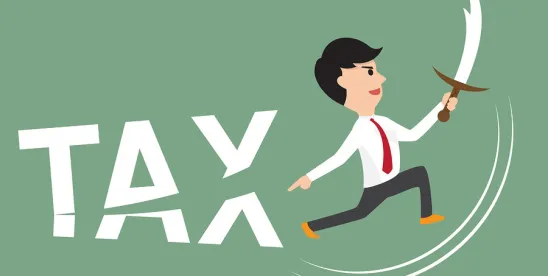The One Big Beautiful Bill creates and/or modifies a number of tax rules that impact taxation of business income, including the permanent extension of the 20% pass-through deduction under Section 199A and the return of full expensing for domestic R&D costs and bonus depreciation. The bill, which was passed on July 3, and was expected to be signed by President Donald Trump by July 4, also expands eligibility for manufacturers using U.S.-based production facilities.
Other key updates include new limits on interest deductions, stricter rules for corporate charitable contributions, and temporary deductions for tip income and overtime pay. Employers and business owners should review these provisions closely to understand the planning opportunities and compliance obligations ahead.
Passthrough Business Income Deduction (199A)
The OBBB makes permanent the pass-through income deduction created under the TCJA which was set to expire at the end of 2025.
Additionally, the OBBB creates a new minimum deduction of $400 (adjusted for inflation), so that eligible taxpayers will never have a Section 199A deduction of less than $400.
Finally, the OBBB expands the deduction limit phase-in range by increasing the $50,000 ($100,000 for joint returns to $75,000 ($150,000 for joint returns). This change will increase the availability of the Section 199A deduction.
Research and Development
The TCJA modified Section 174 to require taxpayers to amortize all Research and Development (“R&D”) expenses over a five-year period, rather than deducting such costs in the year incurred.
The OBBB removes this requirement and provides that taxpayers may once again deduct R&D costs in the current year. However, R&D expenses incurred in a foreign jurisdiction must still be amortized over a 15-year period.
Business Interest Expense Limitation Under Section 163(j)
The TCJA added Section 163(j), which limits a taxpayer’s business interest deductions to 30% of their adjusted taxable income (ATI) other than interest income. The OBBB modifies this rule in a few ways.
The OBBB adds capitalized interest to the definition of business interest for purposes of Section 163(j). This change prevents taxpayers from capitalizing interest payments into otherwise depreciable property as a workaround to the Section 163(j) limitation.
Additionally, Subpart F, Net CFC Tested Income (f/k/a GILTI), and the Section 78 Gross Up are no longer included in the calculation of adjusted taxable income under the OBBB. This change will reduce the amount of includible income for taxpayers with an ownership interest in one or more Controlled Foreign Corporation (“CFC”), resulting in a lower cap on deductible business interest.
Depreciation Deductions
The TCJA permitted taxpayers to deduct 100% of the cost of acquiring certain depreciable property (“Bonus Depreciation”) in the year of acquisition. However, under the TCJA, the Bonus Depreciation provisions were set to expire at the end of 2025. The OBBB eliminated this expiration date and has made Bonus Depreciation permanent moving forward.
The OBBB also provides for Bonus Depreciation with respect to “Qualified Production Property.” Qualified Production Property is new or rehabilitated non-residential real property which is used by the taxpayer for domestic manufacturing. In other words, the OBBB provides for Bonus Depreciation for new or rehabilitated buildings used as factories in the United States. However, only Qualified Production Property placed in service before 2031 will qualify for Bonus Depreciation.
Corporate Charitable Deductions
The OBBB added a minimum floor requirement for corporations to claim charitable deductions. Specifically, a corporation will only be able to deduct charitable contributions when its aggregated deductions exceed 1% of such corporation’s taxable income in the year of the contribution. This new 1% “floor” on corporate charitable deductions operates in addition to the existing 10 percent ceiling.
Contributions above the 10% ceiling may continue to be carried forward for five years. However, amounts disallowed under the 1% floor may only be carried forward to a future year if aggregate corporate contributions exceed 10% of the corporation’s income, including the disallowed amounts.
Key Employment Tax Changes
No Tax on Tips
The OBBB provides a new deduction of up to $25,000 for “qualified tips” received by taxpayers. Qualified tips means cash tips received by an individual while working in an occupation in which tips are customarily and regularly given.
This deduction is available both to taxpayers who itemize as well as taxpayers who do not itemize. However, the $25,000 deduction begins to phase out for taxpayers with income over $150,000 a year ($300,00 for joint filers). Specifically, the deduction is reduced by $100 for each $1,000 of income over the threshold amount.
This deduction against tip income expires at the end of 2028.
No Tax on Overtime
The OBBB provides an new deduction of up to $12,500 for “qualified overtime” received by taxpayers. Qualified Overtime generally means compensation paid to an individual as required under section 7 of the Fair Labor Standards Act of 1938 that is in excess of the regular rate at which such individual is employed.
This deduction is available both to taxpayers who itemize as well as taxpayers who do not itemize. However, the $25,000 deduction phases out for taxpayers with income over $150,000 a year ($300,00 for joint filers). Specifically, the deduction is reduced by $100 for each $1,000 of income over the threshold amount.
This deduction against overtime wages expires at the end of 2028.
Taxes on Social Security Benefits Continue, But Senior Deduction Created
In promoting the OBBB, President Trump and several Republican leaders promised that Social Security would be made tax free. However, procedural rules in the Senate prevented the OBBB from changing to treatment of social security payments.
To compensate, the OBBB creates a new deduction for seniors. Specifically, taxpayers over the age of 65 may receive a $6,000 deduction. This deduction begins to phase out for seniors with income over $75,000 ($150,000 for joint filers).
This new deduction for seniors also expires at the end of 2028.




 />i
/>i
